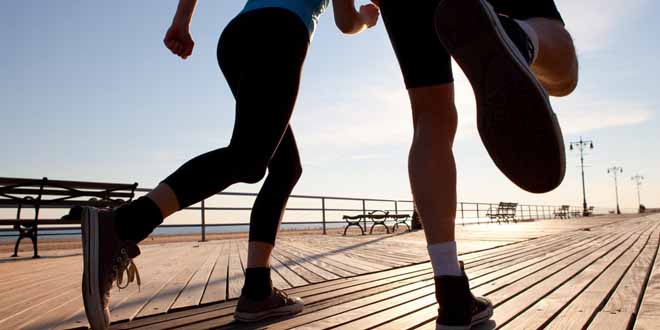
Sick? Start Exercising!
You are ready for your sets, when your gym companion walks in all coughing and sneezing, bringing in droplets full of virus with the air they expel. Internally, you curse at them for showing up at the gym, expecting to get sick soon. If you do not want to be that person, rule number 1is stay out of the gym and any close spaces with a lot of people. This includes bedrooms, elevators and washrooms.
We all get sick but often we do not know what to do. Is it a mild disease? Do we need medical attention? What disease do these symptoms indicate? Should we exercise when we are sick? Should you sweat it out, or rest?
Why Do you Fall Sick?
You have fallen prey to one of the million air borne viruses which has invaded your immune system through your respiratory tract. You have two types of cells in your immune system. Namely neutrophils and natural killer cells which make up your innate immune system. Secondly you have an acquired immune system. This one develops as you grow up and includes lymphocytes and macrophages. They also develop memory cells for any pathogen that they have killed, in case it attacks again.
When a pathogen hits at your system, your immune cells get activated and start working on killing that pathogen. They engulf them, inhibit their colonization, release cytotoxic substances to kill and produce antibodies against them. While your immune system is under attack and beginning to defend, you develop disease symptoms. You feel lethargic, tired and you want to hit the bed. Sometimes your immune system is unable to kill the pathogens and you need antibiotics and anti-viral medication assistance.
How does exercise affect your sick system?
When you are healthy, you begin your work out and gradually build it up. With more intensity your body adapts to it by sending out a ‘stress response’. This adaptation gets better with time making us healthier and stronger.
However, when we are sick it is tough for our immune system to tolerate the stress. Although, it does not mean that you take the role of couch potato as soon as the first sniffles come in. unless, you do not feel severely out of element, keep up non strenuous movement as they might help you. Non strenuous movement includes slow walking, riding a bike, gardening and non panting cardio. In short anything that does not elevate your heart rate too much. These activities are known to boost your immune system by neutralizing free radicals.
While you feel under the weather, you should avoid proper ‘work outs.’ The definition of proper ‘proper work out’ is different for every individual. It depends on their endurance levels and adaptability of their system. Exercising seems to be acting on both our innate and acquired immune system.
- A long strenuous exercise seems to be repressing our acquired immune system. An evidence of this is that many endurance athletes get sick after performing in a marathon.
- A short strenuous exercise however does not seem to bring about the same effect. One neutral intensity work out actually seems to boost innate immune system
- Chronic neutral intensity exercises seem to improve acquired immunity.
Here is the pattern:
- While you are healthy, train hard. Chronic, neutral Exercising and resistance training can build up the immune system over time.
- Take it easy when you are feeling sick, but continue Exercising. Single high intensity or prolonged workout sessions can restrict immune function.
Guiding Principle for Exercising While Sick
Sick day 1: low intensity, short duration, non-strenuous activity in case of over the neck symptoms, such as sore throat, runny nose, blocked nose.
No working out at all in case of ‘below the neck’ symptoms such as diarrhea, stomach ache, chest congestion
Sick day 2: follow ‘over the neck’ and ‘below the neck’ rule.
In case of fever and fatigue, stay in bed.
Sick day 3: if symptoms and fever still persist, visit your physician.
If your symptoms are presently getting better, follow over the neck and below the neck rule.
Sick day 4: if there is no relief from symptoms, visit the doctor
If symptoms disappear gradually get back to exercise.
After you have fully recovered come back to your proper strenuous or routine work outs gradually in proportion to the days you were sick. If you were sick for a week, give your body a week to ease into vigorous exercise once again.

